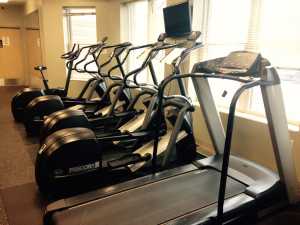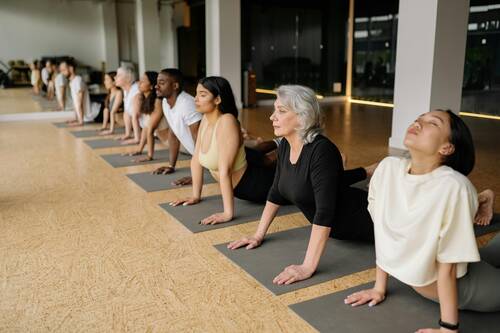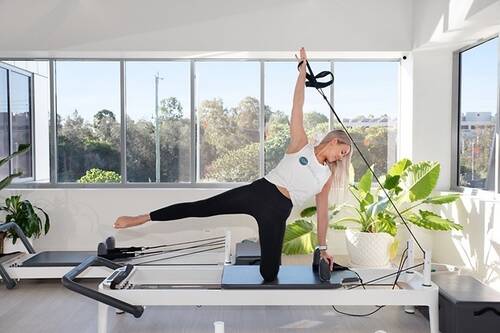Why does staying healthy feel like a full-time job? One minute, it’s all about cutting carbs. The next, it’s “good fats” and intermittent fasting. Add in the latest wellness trends—ice baths, gut cleanses, and wearable sleep trackers—and suddenly, health feels more like a competitive sport than a way of life.
The truth is, vitality isn’t about chasing trends. It’s about creating a lifestyle that works for the long haul—one that keeps you energized, resilient, and able to enjoy life without constantly thinking about what’s “right” or “wrong” for your body. In today’s world, where stress levels are soaring, and chronic illness is more common than ever, the need for sustainable well-being has never been greater.
The good news? Building long-term vitality isn’t about perfection. It’s about consistency, balance, and understanding what your body truly needs. In this blog, we will share the essential elements of a lifestyle that supports vitality, from nutrition and movement to stress management and overall wellness.
(more…)
Aging, Chiropractic / 17.03.2025
Proven Ways to Hit Peak Fitness After 40
Editor's note: Please consult with your health care provider before beginning or changing any fitness or exercise program.
At 40, something shifts. The workouts that once gave quick results now feel like a battle against your own body. Even your favorite sports no longer feel effortless. Casual games often leave you with stiff joints and minor injuries. When an injury occurs, you find yourself frantically searching "chiropractor for sports injury near me" to get back on track.
Chiropractic is certainly an effective way to restore balance and reduce pain. It can enhance flexibility, improve posture, and accelerate your recovery process. However, recovery is an obligation; the goal is achieving fitness.
Research says our metabolism slows down as we age. Therefore, those who are not physically active may start losing 3% to 5% of muscle mass each decade post-30.
After 40, most people watch helplessly as their fitness declines—despite putting in more effort than ever before. The conventional wisdom stops working, and what used to get results now barely maintains the status quo.
The reality is hitting peak fitness after 40 is entirely achievable with the right approach. Here are some science-backed strategies to help you push your body to its full potential.
(more…)
Exercise - Fitness, Nutrition / 07.03.2025
Top-Rated Apps to Help You Achieve Your Full Fitness Potential in 2025
Introduction
Living healthily is not a method to show up anymore, it has become a lifestyle for many people around the word. A balanced lifestyle means a thoughtful approach to both nutrition and movement. A lot of applications offer personalized nutrition plans to help individuals meet their specific health goals, while mindful movement practices like yoga and meditation improve overall well-being. These platforms may also provide tailored solutions for these needs, offering guidance on macro-based meal planning, workplace wellness, and accessible yoga instruction. This article explores three important resources that support a comprehensive approach to health and wellness to help individuals create sustainable, effective routines that will align with their needs.
Personalized Nutrition for Optimal Health
Understanding nutrition is essential for achieving fitness goals, whether it's weight management, muscle gain, or overall health improvement. A structured approach to meal planning ensures that individuals receive the right balance of macronutrients to fuel their bodies effectively. One platform that provides personalized meal planning and macro-tracking is Macrostax, which has been leading the charge in macro-based dieting for nearly a decade. Their top-rated app simplifies nutrition by taking the guesswork out of what to eat, helping their 180,000 customers achieve real results and build healthier, sustainable habits that last a lifetime.
(more…)
Exercise - Fitness, Technology / 04.02.2025
The Ultimate Guide to the Top Fitness Coaching Software for Professionals
In today’s world, being a fitness coach is about so much more than just guiding clients through workouts. As coaching moves online and clients expect personalized support anytime, anywhere, fitness professionals are turning to technology to stay organized, offer better services, and keep up with the demands of the industry. The right software can make all the difference, helping coaches manage their clients, create custom plans, and grow their businesses without sacrificing quality.
This guide highlights three exceptional platforms that cater to different aspects of fitness coaching: Muscle and Motion, Training Tilt, and FitBudd. Each one is designed with specific professionals in mind, whether you’re focused on movement science, endurance training, or scaling your personal training business. Let’s take a closer look at what makes these tools stand out and how they can support your coaching journey.
Muscle and Motion: The Science Behind Fitness Mastery
For fitness professionals who prioritize understanding the science of movement, Muscle and Motion offers a valuable resource. This platform excels in blending theoretical anatomy with practical application, making it a cornerstone for coaches, physiotherapists, and students. The Muscle and Motion Strength Training App is one of the platform's standout tools. It provides step-by-step guidance for mastering exercise techniques and understanding muscle mechanics. With 3D visualizations, an extensive exercise library, and detailed explanations of muscle activation, the app is an invaluable guide for safe and effective workouts. It highlights common mistakes, offers corrections, and focuses on injury prevention, ensuring users can refine their techniques and achieve better results. Additionally, the platform’s emphasis on postural education and biomechanics makes it particularly useful for professionals working in rehabilitation or corrective exercise. Whether you're analyzing posture, preventing injuries, or teaching proper movement mechanics, Muscle and Motion equips you with the knowledge to elevate your practice. This combination of theory and application makes it an essential tool for anyone passionate about movement science. (more…)2025 can be the year you achieve your fitness goals, but it starts with taking that first step. Whether you’re...
Exercise - Fitness, Supplements / 10.01.2025
Pilates, Yoga, and Magnesium: A Trio for Optimal Women’s Fitness
The decision to commit to a synergy of Pilates, Yoga, and magnesium as a woman serious about her fitness is...
Exercise - Fitness, Supplements / 01.01.2025
A Deep Dive into Supplements for Improved Fitness of Bodybuilders
Please note: Supplements are generally not FDA tested or approved. Some supplements can interfere with medications and/or cause side effects. Do not delay seeking medical attention for medical concerns by taking supplements without medical advice.
Please discuss any and all supplements you take with your health care provider and be sure to follow your provider’s recommendations for your prostate and overall health.
Supplements for optimal fitness of bodybuilders may play a vital role in helping you achieve your goals. Whether you're aiming for faster muscle growth, enhanced performance, or quicker recovery, the right supplements can make a difference. With countless options available, it's important to understand what works best for your body and fitness journey.
By incorporating the right supplements into your routine, you may help unlock your potential and reach new heights in your training. These supplements support your efforts in and out of the gym. This blog will explore the supplements for optimal fitness of bodybuilders.
The Role of Protein Powder in Building Lean Muscle
Protein powder plays a key role in bodybuilding nutrition. It helps athletes meet their daily protein needs easily. Bodybuilders need protein to build and repair muscles effectively.
Many types of protein powders are available on the market. Whey protein is popular due to its fast absorption rate. It is great for post-workout recovery and muscle growth.
Using protein powder may also aid in reaching fitness goals. It may help boost muscle growth when paired with exercise.
(more…)
Exercise - Fitness, Lifestyle & Health / 30.12.2024
Top Tips for Boosting Your Health and Well-Being
In today’s fast-paced environment, maintaining balance in your daily routine is essential for long-term vitality. People are increasingly turning to sustainable practices and innovative products to improve their lifestyles. With the right guidance and tools, you can make informed choices to feel your best, physically and mentally.
Here’s how you can adopt lasting habits and contribute to a fulfilling life:
Start with a Balanced Diet
Your body thrives when fueled with a variety of nutrient-rich foods. A colorful plate with vegetables, lean proteins, and whole grains can provide the necessary energy and nutrients to function at your best. Opt for fresh produce whenever possible, as it tends to be packed with essential vitamins and minerals. Incorporating minimally processed items, such as nuts, seeds, and legumes, can further enhance the nutritional profile of your meals. Consider experimenting with meal planning to maintain variety and save time during busy weeks. Developing mindful eating habits will help you feel more energetic and prepared for daily challenges while also improving digestion and focus.
(more…)
Exercise - Fitness, Technology / 13.12.2024
The Ultimate Fitness and Nutrition Apps to Inspire and Motivate Your Body Transformation
Whether you’re a professional in the field or a fitness enthusiast seeking guidance, there’s an app to suit your needs....
Lifestyle & Health, Mental Health Research, Mindfulness-Wellness / 25.11.2024
Sustainable Practices for a Healthy Lifestyle
Living a healthy lifestyle isn’t just about eating right or staying active—it’s also about being mindful of how our actions impact the environment. More people are realizing the connection between their personal well-being and the planet’s health. The good news? You don’t need to overhaul your entire life to make a difference. Small, intentional changes can lead to significant improvements for both you and the environment.
In this article, we’ll explore some simple sustainable practices that promote a healthier lifestyle while being kinder to the planet.
Build a Sustainable Mindset
Ultimately, sustainable living is as much about mindset as it is about specific actions. Developing a sustainable mindset involves rethinking how we approach everyday decisions and recognizing the long-term benefits of small changes.
For example, plan your meals carefully to avoid food waste and save money. When purchasing new items, focus on quality over quantity. A well-made product may cost more upfront, but it will likely last longer and reduce waste in the long run. Sharing resources with your community—like participating in clothing swaps or borrowing tools—can also help reduce consumption.
Another key aspect of a sustainable mindset is teaching the next generation. Encourage children to appreciate nature, recycle, and make eco-friendly choices. By instilling these values early, we can create a culture of sustainability that lasts for years to come.
(more…)
Exercise - Fitness, Mental Health Research / 06.11.2024
Key Tips And Practices All Gardeners Should Take Into Consideration
Do you have green fingers? Are you passionate about gardening? Even though gardening can be therapeutic and relaxing, remember a few tips and tricks to help you on this journey. As a gardener, you must do research to ensure you know the tools and strategies to create your flourishing, relaxing space. In recent years, more individuals have put more effort into their outdoor spaces, which has paid off. In this blog article, we’ll explore a few crucial tips and practices to consider when creating your dream outdoor space.
Contact Experts In Pest Treatment Services
There’s nothing more frustrating than dealing with a pest issue. Not only can this affect the health of your family members, but it can also lead to other problems in your home. If you have an outdoor spa, it’s essential to contact a company that specializes in pest treatment services. They’ll be able to guide you on this journey and help you find solutions to many pest problems. (more…) Keeping up with the fitness sector isn't as easy as it seems, especially when new trends and tech emerge daily. Fitness apps are on the rise, but how do you remain ahead of the competition and provide actual value to users?
Fitness buffs today want more than a workout logging tool. They want data-driven insights, tailored recommendations, and wearable integration. Ignoring these features could lead to your app being uninstalled, along with many others. So, fitness wearables aren't merely devices; they're integral parts of the app ecosystem. You're setting a new standard by integrating your fitness app with wearables. To ensure that your fitness app is ready for the future, it is important to incorporate real-time data, user involvement, and personalized experiences. All this is made possible by smart wearables. Let's look at why adopting wearables can completely transform your app development strategy.
(more…)
Keeping up with the fitness sector isn't as easy as it seems, especially when new trends and tech emerge daily. Fitness apps are on the rise, but how do you remain ahead of the competition and provide actual value to users?
Fitness buffs today want more than a workout logging tool. They want data-driven insights, tailored recommendations, and wearable integration. Ignoring these features could lead to your app being uninstalled, along with many others. So, fitness wearables aren't merely devices; they're integral parts of the app ecosystem. You're setting a new standard by integrating your fitness app with wearables. To ensure that your fitness app is ready for the future, it is important to incorporate real-time data, user involvement, and personalized experiences. All this is made possible by smart wearables. Let's look at why adopting wearables can completely transform your app development strategy.
(more…)
Exercise - Fitness / 23.10.2024
Exciting Fitness and Wellness Apps of 2024 to Elevate Your Body Transformation and Health Goals
As we approach 2025, the fitness and wellness industry continues to develop, offering innovative tools designed to improve body transformation and support overall health. Whether you're a fitness coach, wellness professional, or an individual seeking to optimize your health journey, the right apps can make a huge difference. In this article, we explore three of the best fitness and wellness apps of 2024, each offering unique features to elevate your fitness routine and help you achieve your health goals.
Zeamo: Corporate Wellness Made Easy
Zeamo stands out in the corporate wellness space by offering employees access to full memberships and wellness packages at exclusive rates, with no enrollment or annual fees, and no long-term commitments. This setup provides flexibility, allowing users to cancel at any time. In addition to gym access, Zeamo includes a variety of wellness benefits, such as rewards for staying active, discounts on merchandise, and the chance to participate in monthly prize sweepstakes. Companies using Zeamo can engage employees with team-step challenges, promoting group participation in wellness activities. The platform covers a wide range of services, including gym memberships, nutrition programs, meal delivery, and mental wellness apps. Zeamo’s partnerships with organizations like the Mayo Clinic and iFIT ensure access to trusted wellness resources. (more…)
Exercise - Fitness, Steroids / 10.10.2024
Breaking Free from Steroid Addiction: 6 Things to Keep in Mind
Breaking Free from Steroid Addiction: 6 Things to Keep in Mind
Steroid addiction is a real challenge, especially in the fitness world, where the pressure to excel can be intense. It's not only about the physical dependency. It's also about the mental battle to let go of something you may think is essential for success. But here's the thing: breaking free from steroid addiction is crucial for your long-term health and well-being. Whether you're a gym enthusiast, a professional athlete, or someone who started using steroids as supplements to your workouts, it's important to recognize the need to step back and choose a healthier path. This article aims to guide you through six key things to remember as you embark on this journey of recovery and rediscovery.1. Understanding Steroid Addiction
Steroid addiction, often unnoticed in the beginning, can gradually become a significant problem for those striving for physical perfection or performance enhancement. Understanding this addiction is the first step towards overcoming it.What Is Steroid Addiction?
Steroid addiction, as Little Creek Recovery elucidates, occurs when individuals become dependent on anabolic steroids, substances commonly used to enhance muscle growth and athletic performance. Initially, these steroids might be seen as a quick way to bulk up, but over time, the body starts craving them, leading to dependency. (more…)
Are you trapped in a cycle, struggling to choose the ideal cardio routine? You are not alone! Many fitness enthusiasts need clarification about the ongoing debate on which is best: biking or running.
The Case for Biking
Cycling enthusiasts today celebrate the essence of this ride, feeling the wind in their hair and experiencing the liberating sense of freedom on the road. Is it genuinely fantastic for cyclists? Absolutely! Biking is an exercise with minimal negative impact on the joints. The caloric burn is massive and terrific for building leg muscles and improving cardiovascular stamina. Whether you race on the road or go on mountain treks, there is always a bike for you. If you want a perfect customized ride, you can check obedbikes.com for custom builds that fit like a glove. But it does not stop there. A long bike ride's meditative nature can relieve stress and improve one's state of mind. Who knew that two wheels could take you so far? (more…)
Exercise - Fitness / 25.09.2024
Kickstart Your Health And Wellness Journey: Top Trends To Look Out For
In recent years, there’s been an increase in awareness around health and wellness, so many individuals have started dusting off their old gym gear and finding ways to incorporate a healthy diet into their lifestyles. Health is wealth, which has become the modern language that modern individuals have introduced into their lives.
In our busy world, it can often be challenging to take a moment to ourselves and simply breathe. This has caused a widespread pandemic of mental health issues that have plagued many individuals. These symptoms have appeared in daily lives, work environments, and homes.
This has brought about an awareness of the importance of mental health. In the past, mental health was seen as a luxury reserved for the elite members of society who had access to medical attention and the time to focus on their psychological state. This has slowly started shifting, and now, more than ever, individuals understand that if they want to live well in the world, they must make sure they have the right frame of mind to navigate life.
Physical exercise and movement have been proven to reduce stress and significantly improve mental abilities and brain function. Exercising at least 30 minutes daily will make you a better version of yourself.
However, exercise has evolved, and now individuals understand that it doesn't mean you have to be able to run on a treadmill or lift a certain amount of weights. Instead, you can walk around the block just to get the blood pumping!
A nutritionally balanced diet maintains overall health and well-being. It’s, therefore, essential to ensure you’re eating the suitable types of food to nourish your body and help you get through each day.
There have been countless studies on what foods should be consumed, but the consensus remains. We must eat a well-balanced diet to improve our health and wellbeing.
In this blog article, we’ll explore a few of the main ways you can boost your overall health and wellness by following these few health trends.
(more…)
Exercise - Fitness, Technology, Weight Research / 02.09.2024
The Role of Technology in Modern Fitness: From Apps to Smart Scales
Technology has revolutionized and reshaped the modern fitness industry in recent years. Its role in the fitness sphere has shifted from supporting to key, changing how people approach health and wellness.
With the rise of mobile apps, wearable technology, and smart scales, staying on top of your health has never been easier and more accessible. This fitness technology is available to everyone, catering to various preferences and fitness levels.
As a result, people get to optimize their workouts, track their progress, and adopt healthier lifestyles. Some tools include personalized plans, nutritional advice, and a more holistic view of one’s health.
Continue reading to learn more about how fitness apps and smart scales can help you track and achieve your goals and adopt a better approach to your health.
(more…)
 Being fit is very important. It's not just about how we look but also about how we feel. When we are fit, we have lots of energy and can do lots of things. We can run, jump, and play without getting tired easily. Being fit also helps us stay healthy and strong. When we care for our bodies, we can do our best and feel happy daily!
This guide will help you understand fitness in a simple and fun way. We’ll talk about why fitness is important, how to get started, and some cool tips to keep you motivated. Let’s jump in!
Being fit is very important. It's not just about how we look but also about how we feel. When we are fit, we have lots of energy and can do lots of things. We can run, jump, and play without getting tired easily. Being fit also helps us stay healthy and strong. When we care for our bodies, we can do our best and feel happy daily!
This guide will help you understand fitness in a simple and fun way. We’ll talk about why fitness is important, how to get started, and some cool tips to keep you motivated. Let’s jump in!
Why Fitness is Important
Fitness is like a superpower that makes your body and mind stronger. Here are some reasons why it’s so important:- Boosts Energy: Exercise gives you more energy to do the things you love.
- Improves Mood: Physical activity releases happy chemicals in your brain, making you feel happier.
- Strengthens Muscles and Bones: Regular exercise helps build strong muscles and bones.
- Helps You Sleep Better: Being active can help you sleep like a baby at night.
- Reduces Stress: Exercise is a great way to blow off steam and feel calm.
Author Interviews, Exercise - Fitness / 19.09.2023
Morning Workout Is Promising Tool for Weight Control
WeightControl.com Interview with:
 Tongyu Ma, Ph.D., MBBS, ACSM EP-C
Assistant Professor of Exercise Physiology
Franklin Pierce University
WeightControl.com: What is the background for this study?
Response: The benefit of Moderate-to-Vigorous Physical Activity (MVPA) on weight management is widely recognized. We found that timing also matters. Individuals who accumulated MVPA in the early morning had lower BMI and WC, compared to those whose MVPA were in the midday or evening.
(more…)
Tongyu Ma, Ph.D., MBBS, ACSM EP-C
Assistant Professor of Exercise Physiology
Franklin Pierce University
WeightControl.com: What is the background for this study?
Response: The benefit of Moderate-to-Vigorous Physical Activity (MVPA) on weight management is widely recognized. We found that timing also matters. Individuals who accumulated MVPA in the early morning had lower BMI and WC, compared to those whose MVPA were in the midday or evening.
(more…)
 Tongyu Ma, Ph.D., MBBS, ACSM EP-C
Assistant Professor of Exercise Physiology
Franklin Pierce University
WeightControl.com: What is the background for this study?
Response: The benefit of Moderate-to-Vigorous Physical Activity (MVPA) on weight management is widely recognized. We found that timing also matters. Individuals who accumulated MVPA in the early morning had lower BMI and WC, compared to those whose MVPA were in the midday or evening.
(more…)
Tongyu Ma, Ph.D., MBBS, ACSM EP-C
Assistant Professor of Exercise Physiology
Franklin Pierce University
WeightControl.com: What is the background for this study?
Response: The benefit of Moderate-to-Vigorous Physical Activity (MVPA) on weight management is widely recognized. We found that timing also matters. Individuals who accumulated MVPA in the early morning had lower BMI and WC, compared to those whose MVPA were in the midday or evening.
(more…)
Exercise - Fitness / 10.06.2021
How to Hit Health and Fitness Goals
Setting goals is a common strategy that people use when it comes to health and fitness – and for good reason. People tend to work better when they have clear targets in mind that they can work towards achieving. However, plenty of us are going to struggle along the way. No matter what your health and fitness goals are, here are some of the ways that you can hit them just a little bit more easily.
Make Your Goals Measurable
 The problem with the goals that many people set is that they are simply not measurable. For example, the goal could be to do with running. Rather than just simply saying ‘I would like to be able to run for a while’, you should instead say ‘I would like to be able to run for a mile’. There you have a clear target to aim for. Once you hit this target, you will then be able to make the necessary adjustments to it. For example, you can increase the distance that you are running or say that you will do it in a certain amount of time.
(more…)
The problem with the goals that many people set is that they are simply not measurable. For example, the goal could be to do with running. Rather than just simply saying ‘I would like to be able to run for a while’, you should instead say ‘I would like to be able to run for a mile’. There you have a clear target to aim for. Once you hit this target, you will then be able to make the necessary adjustments to it. For example, you can increase the distance that you are running or say that you will do it in a certain amount of time.
(more…)
 The problem with the goals that many people set is that they are simply not measurable. For example, the goal could be to do with running. Rather than just simply saying ‘I would like to be able to run for a while’, you should instead say ‘I would like to be able to run for a mile’. There you have a clear target to aim for. Once you hit this target, you will then be able to make the necessary adjustments to it. For example, you can increase the distance that you are running or say that you will do it in a certain amount of time.
(more…)
The problem with the goals that many people set is that they are simply not measurable. For example, the goal could be to do with running. Rather than just simply saying ‘I would like to be able to run for a while’, you should instead say ‘I would like to be able to run for a mile’. There you have a clear target to aim for. Once you hit this target, you will then be able to make the necessary adjustments to it. For example, you can increase the distance that you are running or say that you will do it in a certain amount of time.
(more…)
Author Interviews, Exercise - Fitness, Lifestyle & Health, Weight Research / 16.05.2019
Walking Pace Addresses Fit versus Fat Debate
MedicalResearch.com Interview with:
 Francesco Zaccardi, MD, PhD
Clinical Epidemiologist
Assistant Director Leicester Real World Evidence Unit
Leicester Diabetes Centre
UK
MedicalResearch.com: What is the background for this study?
Response: The role of excess body weight on mortality has been extensively investigated during the last decades. Studies from several countries have also shown, however, that the risk of death in persons who are overweight or obese is lower if their fitness, a parameter indicating cardio-pulmonary health, is higher.
Most of these studies reported the beneficial effect of fitness in terms of relative risk reduction, for example 20% reduction of risk of death. Relative estimates, though, are difficult to interpret. (more…)
Francesco Zaccardi, MD, PhD
Clinical Epidemiologist
Assistant Director Leicester Real World Evidence Unit
Leicester Diabetes Centre
UK
MedicalResearch.com: What is the background for this study?
Response: The role of excess body weight on mortality has been extensively investigated during the last decades. Studies from several countries have also shown, however, that the risk of death in persons who are overweight or obese is lower if their fitness, a parameter indicating cardio-pulmonary health, is higher.
Most of these studies reported the beneficial effect of fitness in terms of relative risk reduction, for example 20% reduction of risk of death. Relative estimates, though, are difficult to interpret. (more…)
 Francesco Zaccardi, MD, PhD
Clinical Epidemiologist
Assistant Director Leicester Real World Evidence Unit
Leicester Diabetes Centre
UK
MedicalResearch.com: What is the background for this study?
Response: The role of excess body weight on mortality has been extensively investigated during the last decades. Studies from several countries have also shown, however, that the risk of death in persons who are overweight or obese is lower if their fitness, a parameter indicating cardio-pulmonary health, is higher.
Most of these studies reported the beneficial effect of fitness in terms of relative risk reduction, for example 20% reduction of risk of death. Relative estimates, though, are difficult to interpret. (more…)
Francesco Zaccardi, MD, PhD
Clinical Epidemiologist
Assistant Director Leicester Real World Evidence Unit
Leicester Diabetes Centre
UK
MedicalResearch.com: What is the background for this study?
Response: The role of excess body weight on mortality has been extensively investigated during the last decades. Studies from several countries have also shown, however, that the risk of death in persons who are overweight or obese is lower if their fitness, a parameter indicating cardio-pulmonary health, is higher.
Most of these studies reported the beneficial effect of fitness in terms of relative risk reduction, for example 20% reduction of risk of death. Relative estimates, though, are difficult to interpret. (more…)
AHA Journals, Author Interviews, Blood Pressure - Hypertension, Exercise - Fitness / 22.02.2019
Effects of Morning Exercise With/Without Breaks in Sitting on Blood Pressure
MedicalResearch.com Interview with:
Michael J. Wheeler
Baker Heart and Diabetes Institute
Melbourne, Victoria, Australia
MedicalResearch.com: What is the background for this study? What are the main findings?
Response: We conducted this study because separate lines of inquiry have determined that a bout of exercise can acutely lower blood pressure, and more recently that prolonged sitting can increase blood pressure over the space of a day. We wanted to know whether the blood pressure lowering effects of an exercise bout would be diminished by a subsequent period of prolonged sitting or enhanced by a subsequent period of sitting that is regularly interrupted with short walking breaks.
We found an additive blood pressure lowering effect when exercise was combined with breaks in sitting as opposed to exercise plus prolonged sitting. However, this was only true for women. Men had equal blood pressure lowering effects following exercise regardless of whether-or-not subsequent sitting was interrupted (more…)
Annals Internal Medicine, Author Interviews, Exercise - Fitness, Heart Disease, Karolinski Institute, Weight Research / 13.02.2019
Poor Fitness and Obesity in Early Life Linked to Greater Disability as Adult
MedicalResearch.com Interview with:
Pontus Henriksson | PhD and Registered Dietitian
Postdoctoral Researcher | SFO-V Fellow
Department of Biosciences and Nutrition
Karolinska Institutet
MedicalResearch.com: What is the background for this study? What are the main findings?
Response: In many countries, disability pensions are granted to working-aged persons who are likely to never work full-time again because of a chronic disease or injury diagnosed by a physician. In addition to serving as an important indicator of chronic disease, disability pensions are associated with high societal costs.
Hence, we examined whether cardiorespiratory fitness and obesity (two potentially modifiable factors) were associated with disability pension later in life.
Our main findings were that low physical fitness and/or obesity during adolescence, were strongly associated with disability pension later in life due to a wide range of diseases and causes. (more…)
Author Interviews, Exercise - Fitness, Heart Disease, JAMA / 30.01.2019
Endurance Athletes May Have More Coronary Artery Calcification But No Greater Risk
MedicalResearch.com Interview with:
Laura DeFina, MD
President and Chief Executive Officer
Chief Science Officer
The Cooper Institute
MedicalResearch.com: What is the background for this study?
Response: Several studies suggest that endurance athletes may be at higher risk for asymptomatic hardening of the coronary arteries. These studies, however, have been done on small numbers of endurance athletes (ie – marathon runners) and do not show whether this increase in hardening actually leads to increase in heart attacks or death of cardiovascular disease.
In our population of 21,758 generally healthy individuals (average age 52 years) who presented for a preventive medicine examination, we were able to evaluate for the presence of hardening and cardiovascular events in individuals who exercised high volumes (≥3000 MET·minutes/week or comparable to running 6 miles/hour for an hour 5 days a week) versus those exercising less. (more…)
Author Interviews, Cleveland Clinic, Exercise - Fitness, JAMA / 20.10.2018
Mortality Decreases with Increased Aerobic Fitness
Maintaining a high functional aerobic class appears to be associated with low mortality in all age groups. ...
Author Interviews, Exercise - Fitness, Microbiome, UCSF / 12.07.2018
How Fit You Are May Depend On The Bacteria in Your Gut
MedicalResearch.com Interview with:
James R. Bagley, PhD
Assistant Professor of Kinesiology
Director, Muscle Physiology Lab
Co-Director, Exercise Physiology Lab
Research Director, Strength & Conditioning Lab
San Francisco State University
MedicalResearch.com: What is the background for this study? What are the main findings?
Response: The human body contains many billions of bacteria cells, and the type of bacteria in your gastrointestinal tract (termed gut microbiota) has been linked to certain diseases.
Most of your gut microbiota falls into two categories: Firmicutes (F) or Bacteroidetes (B). The relative gut F/B ratio has been used to assess microbiota health. Our study was the first to examine potential relationships among F/B ratio and cardiorespiratory fitness, body composition, and diet in healthy young men and women
We recruited 37 healthy adults to undergo a battery of physiological tests and collected stool samples to analyze their gut F/B ratio using qPCR.
We found that F/B ratio was significantly correlated with cardiorespiratory fitness, but with no other variables. In fact, this correlation was so strong that a person’s fitness level explained ~22% of the variance in their gut bacteria composition. (more…)
Author Interviews, Exercise - Fitness, Weight Research / 14.02.2018
Fit Obese Patients Can Be Healthy
MedicalResearch.com Interview with:
 Jennifer L. Kuk, PhD
Associate Professor
York University
School of Kinesiology and Health Science
Sherman Health Science Research Centre
Toronto, Ontario
MedicalResearch.com: What is the background for this study? What are the main findings?
- The benefits of fitness are well know, but it was unclear whether the benefits applied to those with severe obesity. This is even more important give that the health risks associated with severe obesity are exponentially higher than in mild obesity. Fitness in this study was defined as the top 80% of a normal population.This means that unfit is the bottom 20%. In the past, research has shown that this threshold of fitness is associated with the biggest health benefits.
- We see that 40% of individuals with mild obesity are fit, while 11% of those with severe obesity are fit. Individuals with high fitness had no differences in health risk, despite the large differences in obesity (~50-100 pounds). Conversely, those within the unfit group did have significantly higher glucose, blood pressure and lipids with higher obesity levels.
In other words, fitness was able to protect individuals with severe obesity from many of the expected negative health consequences. (more…)
Jennifer L. Kuk, PhD
Associate Professor
York University
School of Kinesiology and Health Science
Sherman Health Science Research Centre
Toronto, Ontario
MedicalResearch.com: What is the background for this study? What are the main findings?
- The benefits of fitness are well know, but it was unclear whether the benefits applied to those with severe obesity. This is even more important give that the health risks associated with severe obesity are exponentially higher than in mild obesity. Fitness in this study was defined as the top 80% of a normal population.This means that unfit is the bottom 20%. In the past, research has shown that this threshold of fitness is associated with the biggest health benefits.
- We see that 40% of individuals with mild obesity are fit, while 11% of those with severe obesity are fit. Individuals with high fitness had no differences in health risk, despite the large differences in obesity (~50-100 pounds). Conversely, those within the unfit group did have significantly higher glucose, blood pressure and lipids with higher obesity levels.
In other words, fitness was able to protect individuals with severe obesity from many of the expected negative health consequences. (more…)
 Jennifer L. Kuk, PhD
Associate Professor
York University
School of Kinesiology and Health Science
Sherman Health Science Research Centre
Toronto, Ontario
MedicalResearch.com: What is the background for this study? What are the main findings?
- The benefits of fitness are well know, but it was unclear whether the benefits applied to those with severe obesity. This is even more important give that the health risks associated with severe obesity are exponentially higher than in mild obesity. Fitness in this study was defined as the top 80% of a normal population.This means that unfit is the bottom 20%. In the past, research has shown that this threshold of fitness is associated with the biggest health benefits.
- We see that 40% of individuals with mild obesity are fit, while 11% of those with severe obesity are fit. Individuals with high fitness had no differences in health risk, despite the large differences in obesity (~50-100 pounds). Conversely, those within the unfit group did have significantly higher glucose, blood pressure and lipids with higher obesity levels.
In other words, fitness was able to protect individuals with severe obesity from many of the expected negative health consequences. (more…)
Jennifer L. Kuk, PhD
Associate Professor
York University
School of Kinesiology and Health Science
Sherman Health Science Research Centre
Toronto, Ontario
MedicalResearch.com: What is the background for this study? What are the main findings?
- The benefits of fitness are well know, but it was unclear whether the benefits applied to those with severe obesity. This is even more important give that the health risks associated with severe obesity are exponentially higher than in mild obesity. Fitness in this study was defined as the top 80% of a normal population.This means that unfit is the bottom 20%. In the past, research has shown that this threshold of fitness is associated with the biggest health benefits.
- We see that 40% of individuals with mild obesity are fit, while 11% of those with severe obesity are fit. Individuals with high fitness had no differences in health risk, despite the large differences in obesity (~50-100 pounds). Conversely, those within the unfit group did have significantly higher glucose, blood pressure and lipids with higher obesity levels.
In other words, fitness was able to protect individuals with severe obesity from many of the expected negative health consequences. (more…)
Author Interviews, Exercise - Fitness, Technology / 10.07.2017
Pokémon Go! Promotes Walking and Decreases Sitting Time
MedicalResearch.com Interview with:
Jacob Barkley, Ph.D.,
College of Education, Health and Human Services
Kent State
MedicalResearch.com: What is the background for this study?
Response: Our group has demonstrated that cellular telephone (cell phone) use is positively associated with sedentary behavior (i.e., sitting). To that end, high cell phone users sit for 80 to 100 minutes longer than their lower-use peers. We have also shown that cell phone use during exercise decreases exercise intensity and slows free-living walking speed. In other words, cell use may be comparable to traditional sedentary screen use in that it promotes sitting and may interfere with physical activity. However, some cell phone functions may actually promote positive health behaviors.
Fitness apps, connecting with active peers and administering health recommendations via the cell phone all may have utility in promoting physical activity and reducing sedentary behavior. While not well studied, novel physically-interactive cell phone games may also promote physical activity. One such game, Pokémon Go! requires users to walk through real environments and locate avatars in the game using GPS. The purpose of the game is to find these avatars. In order to find more avatars, the player will need to walk to more areas. Therefore, playing Pokémon Go! may promote walking.
(more…)
Author Interviews, CDC, Exercise - Fitness, JAMA / 04.07.2017
More Adults Walking For Transportation or Leisure, But Demographic Deparities Remain
MedicalResearch.com Interview with:
Emily Neusel Ussery, MPH PhD
Epidemiologist, Physical Activity and Health Branch
CDC
MedicalResearch.com: What is the background for this study? What are the main findings?
Response: Walking is an easy way for most people to start and maintain a physically active lifestyle. Step It Up! The Surgeon General’s Call to Action to Promote Walking and Walkable Communities identifies walking as an important public health strategy to increase physical activity levels in the U.S. A previous report found that the percentage of adults who reported walking for transportation or leisure increased by 6 percentage points between 2005 and 2010, but it is unknown if this increase has continued. This report examined trends in the proportion of U.S. adults who reported walking for transportation or leisure for at least one 10-minute period in the past week, using nationally representative data from the 2005, 2010, and 2015 National Health Interview Surveys. We also examined differences in walking trends by sociodemographic characteristics. If you take walking seriously, make sure you invest in some custom boots to make sure you don't damage your feet. For those who need to transport larger items while walking isn't an option, utilizing a Large Item Courier service can help ensure safe and efficient delivery.
(more…)
Author Interviews, Exercise - Fitness, Geriatrics, NEJM, Weight Research / 17.05.2017
Aerobic or Resistance Exercise, or Both, in Dieting Obese Older Adults?
MedicalResearch.com Interview with:
Dennis T. Villareal, MD
Professor of Medicine
Division of Endocrinology, Diabetes & Metabolism
Baylor College of Medicine
Staff Physician, Michael E DeBakey VA Medical Center
MedicalResearch.com: What is the background for this study? What are the main findings?
Response: The prevalence of obesity in the elderly is rapidly increasing, given that the baby boomers are becoming senior citizens, but we do not know how best to manage obesity in the elderly population. Weight loss is the cornerstone of management for obesity but weight loss in the elderly is controversial because weight loss could cause not only fat loss but also muscle mass and bone mass losses, that could worsen rather than improve frailty.
We tested the hypothesis that weight loss plus exercise training, especially resistance training, would improve physical function the most compared to other types of exercise (aerobic training or combined aerobic and resistance training added to diet-induced weight loss).
Previous studies especially in younger adults have shown that combining aerobic with resistance exercise could lead to interference to the specific adaptations to each exercise, and thus less gain in strength with combined exercise compared to resistance training alone.
On the other hand, contrary to our hypothesis, we found that there was no interference between aerobic and resistance exercise, and the most effective mode to improve physical function and thus reverse frailty was in fact weight loss plus the combination of aerobic and resistance exercise, which was also associated with some preservation of muscle and bone mass.
(more…)
- 1
- 2




















